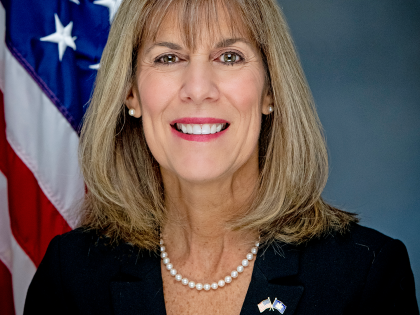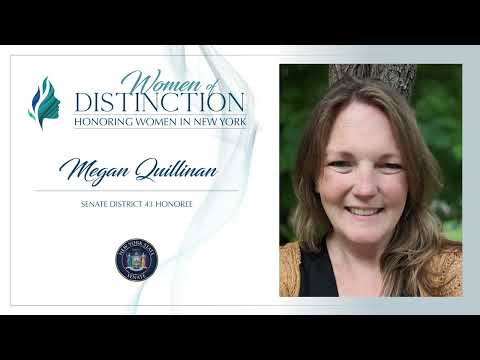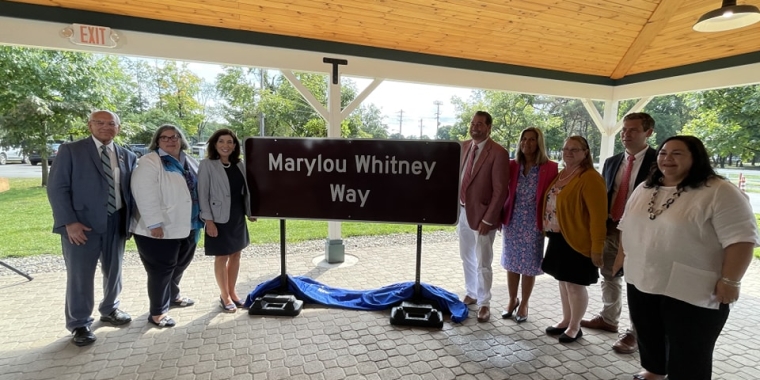
Extraordinary Session in Extraordinary Times
July 8, 2022
Extraordinary Times
Extraordinary times indeed. Inflation is at its highest in 40 years where gas and food prices are at an all-time high forcing people to choose what needs they can afford. Out of control crime for the past several years is causing nearly 80% of New Yorkers to be concerned that they could be a crime victim. Yes, there should be an Extraordinary Session to address these issues so New Yorkers can afford to live and feel safe to live in New York. An Extraordinary Session to make it more difficult for law-abiding citizens (they are law-abiding if they are going through the process proposed and passed) to get a license for a concealed carry firearm is not the fix.
The Legislative Process
On Friday, June 24 Governor Hochul sent to every Legislator an Executive Chamber Proclamation stating there would be an Extraordinary Session on Thursday, June 30th at noon to address “necessary statutory changes regarding firearm safety, in a way that ensures protection of public safety and health, after the United States Supreme Court decision in NYS Rifle and Pistol Association, Inc. v. Bruen.”
Governor Hochul repeated to the press time and again that she was working on a bill. Where was the bill? That was the question I kept asking from the day before this Session. I woke up periodically Wednesday night to check and see if the bill was out yet. No bill. Noontime came on Thursday and Session began with a gavel-in immediately followed by the announcement that the Senate would stand at ease. The sparse in-person attendance of legislators then retreated to their individual offices. We waited all day at taxpayers’ expense for an unprepared Session with no bill to be had, reviewed, or out there for public comment. Finally, just after 10 PM, my Conference’s Counsel received a draft of the bill from the Democrat Majority with no promise that it would be the final version of the bill that would go to print. My Republican colleagues and I conferenced on the bill and were told that we would be voting on it later that night. At 1:15AM, the Majority notified us that Session would resume at 10 AM that morning. The bill was being printed in the morning.
Is this the way your Legislature should work? I think not. If Legislators were called to Albany, a bill should have been drafted ahead of time. In fact, a drafted bill should have had all stake holders at the table to get it right (for a change)! The New York State Sheriff’s Association has already stated that “law enforcement agencies and the courts, which bear most of the responsibility for implementing the new licensing laws, were deprived of any opportunity to point out to Legislators the burdensome, costly, and unworkable nature of many of the new laws’ provisions.” The bill should have been in the public realm for at least three days for legislators and the public to review as required by the State Constitution. The trend of using a Message of Necessity from the Governor to circumvent constitutional procedure for major pieces of legislation sadly continues in New York State where the practice of consistently ramming through faulty legislation hurts New Yorkers.
Prologue to “The Bill”
On June 23, 2022, the US Supreme Court, in New York State Rifle and Pistol Association v. Bruen struck down a provision in New York law that proper cause be demonstrated for the issuance of a concealed carry firearm license by an applicant. There is no statutory definition for “proper cause” and it has only been interpreted in case law to mean that a person must demonstrate a special need for special protection unique from that of the general community. This high standard and its arbitrariness often led to the denial of most concealed carry applications, while hindering the constitutional rights of law-abiding gun owners, hence, the requirement to show “proper cause” was nullified by the Supreme Court.
The Bill S.51001/A.41001
Under one-party rule, this bill was out in print, voted on and quickly signed by the Governor in a matter of hours. It was obvious that public comment was not wanted for this new gun legislation which is costly, with no money set aside for it to work, administratively burdensome and duplicitous, destroys the concept of a concealed carry permit and will eventually be decided as unconstitutional in that it severely limits 2nd Amendment rights.
Under new permit application requirements, an applicant is required to meet with the licensing officer for an in-person interview to assess “good moral character” which is defined as “the essential character, temperament and judgment necessary to be entrusted with a weapon” and to use it only in a manner that does not endanger oneself or others. This definition can lead to much subjective opinion and application just as did “proper cause” leading to a constitutional issue. Applicants are required to submit: names of partners and co-habitants and indicate if minors reside with them; four character references who can attest to the applicants good moral character; anything else the licensing officer requests to assess their good moral character and a list of social media accounts from the past three years.
This legislation also creates new training requirements for concealed carry license applicants. Firearm training would include at least 16 hours of in-person live training and a score of at least 80 percent on a written exam. Also required is at least 2 hours of live-fire training for which DCJS and the State Police would promulgate regulations as to the proficiency level required. Current concealed license holders are required to complete this training prior to the first renewal of their license. Concealed carry permits will need to be renewed every three years.
These extensive and expanded requirements came with no funding included for the increased work detail and time of local licensing officers which will severely increase the length of time and backlog in obtaining a license. In addition, the hours of training requirements may be cost-prohibitive to those with lower incomes and create lengthy wait times to law-abiding citizens who want to exercise their constitutional right to publicly carry for self- defense.
Two new crimes were created in this bill. The first, Criminal Possession of a Firearm, Rifle or Shotgun in a Sensitive Location is a Class E non-violent felony, non- bail eligible crime in which a person could face up to 4 years in jail when they possess a firearm, rifle, or shotgun in a place they know or reasonably should know is a sensitive location. Among sensitive locations are: federal, state and local government buildings; locations for health; places of worship; libraries, playgrounds, public parks and zoos; locations regulated by OCFS that provide services to children, youth or young adults; nursery schools, preschools and summer camps; any facility regulated by OPWDD, OASAS, OMH, OAS and OTDA; homeless, runaway, family, emergency and domestic violence victims shelters; residential settings regulated by DOH; buildings or grounds of educational institutions; places or vehicles used for public transportation; places used for consumption of alcohol or cannabis; any place used for performance, art, entertainment, gaming or sporting events; polling places; any public sidewalk or other public area restricted from general public access for a limited time or permitted special event, or subject to heightened law enforcement protection; any gathering of individuals to protest or assemble and Times Square conspicuously identified with signage. Given the extensive list of sensitive places where the right to publicly carry a firearm is forbidden, this legislation will very likely be unconstitutional in that there aren’t many places one can carry a concealed weapon.
The second crime created in this legislation is Criminal Possession of a Weapon in a Restricted Location which is also a Class E non-violent felony punishable up to four years in jail. A person is guilty if they possess a firearm, rifle or shotgun and enters into, or remains on or in a private property, where such person knows or reasonably should know that the owner or lessee of such property has not permitted such possession by clear and conspicuous signage indicating that the carrying of these firearms on their property is permitted or has otherwise given express consent. This puts the burden on property owners to make clear that firearms are authorized on their premises. Rather, in accord with the 2nd Amendment, the presumption should be that concealed carry firearms are permitted unless expressly prohibited. This also sets up two classes of property owners and small businesses. Those that allow concealed carry firearms and have signage indicating so and those that do not. It jeopardizes “those that do not” to criminals who are looking for a safe place to commit crime.
The construct of the two new crimes and the broad list of sensitive locations where firearms are not allowed, set up a puzzling maze for anyone with a legal concealed carry firearm to navigate or to make the availability of their firearm of much use in ensuring their self-protection, thus impeding their 2nd Amendment rights.
Revisiting the SAFE Act
The bill requires a statewide license and record database created and maintained by the State Police which was originally required by the SAFE Act, but never implemented because it was technologically not feasible. It also tries to resurrect a new database for ammunition sales. Records of granted license applications and pending license applications must be checked by DCJS in conjunction with the State Police every month and checked with records of criminal convictions, indictments, mental health and extreme risk protection orders. If DCJS determines that an individual is ineligible for a license, they must notify the licensing official who then must not issue a license or revoke any license issued. As for ammunition sales, sellers of ammunition would be required to contact the State Police to run a background check against the database before completing a transaction. The creation of this database and enormous undertaking by DCJS and the State Police will substantially increase their workload for which no funding has been allocated. In addition, the question of technological feasibility of the database is still at issue.
This bill also addresses the safe storage law to now apply if any person under the age of 18 lives in the home. It also adds a vehicle safe storage requirement that prohibits a person from leaving a loaded gun in a car outside of his or her immediate possession or control unless the gun is in a lockbox. You can bet with the patchwork of areas where a concealed carry firearm is permitted and not permitted, that many guns will have to be left in cars as a licensed carrier goes about their day navigating where they may carry and not carry their protection. Does this make anyone feel safe?
I have given you a general run down of the gun legislation that was penned and passed by one party rule last week. In a nutshell, the legislation was a defiant end-run around the Supreme Court ruling in Bruen that creates more permitting requirements, stiffer gun restrictions, overly broad restrictions as to “sensitive” areas where firearms are not allowed and the unconstitutional presumption that concealed carry firearms are illegal unless clear visible signage states otherwise.
This legislation actually creates more difficulties in pursuing a concealed carry license than existed before the Bruen ruling and vastly restricts where people are permitted to carry. Second Amendment rights are clearly at stake. Stay tuned for ensuing court challenges.
The Extraordinary Session aimed at ensuring protection of public safety and health did not do so. The legislation passed will only impede law-abiding citizens and gun owners from self-protection. This does nothing to stop those that carry guns illegally and those that are determined to commit a crime.
If we truly want to address public safety, the legislature needs to repeal cashless bail and other soft-on-crime laws, support law enforcement to do its job, pass an agenda that puts victims and innocent New Yorkers before criminals and fix the State’s failing mental health system.
Link to the bill
https://www.nysenate.gov/legislation/bills/2021/s51001
Link to Sheriffs’ Association statement
https://nysheriffs.org/statement-concerning-new-yorks-new-firearms-licensing-laws/

